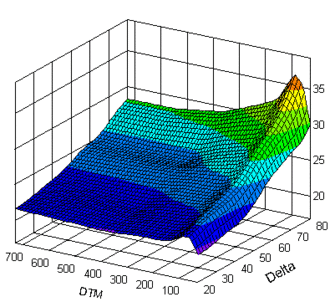Mathematical economics
Mathematical economics is a branch of economics that utilizes mathematical methods to represent economic theories and analyze problems posed in economics. This approach allows for the formulation of theoretical models with precise assumptions and the derivation of conclusions from these models.
History
The use of mathematics in economics dates back to the works of early economists such as Antoine Augustin Cournot and Leon Walras. Cournot's work in the 19th century on the theory of oligopoly and Walras' development of general equilibrium theory laid the foundation for the formalization of economic analysis.
Key Concepts
Mathematical economics encompasses a variety of concepts and techniques, including:
- Optimization: The process of finding the best solution from a set of feasible solutions, often used in consumer theory and producer theory.
- Game theory: The study of strategic interactions among rational decision-makers.
- General equilibrium: A condition in the economy where supply and demand are balanced across all markets.
- Comparative statics: The analysis of changes in economic outcomes resulting from changes in parameters or exogenous variables.
- Dynamic systems: The study of how economic variables evolve over time.
Applications
Mathematical economics is applied in various fields within economics, such as:
- Microeconomics: The study of individual agents and markets.
- Macroeconomics: The study of the economy as a whole.
- Econometrics: The application of statistical methods to economic data.
- Finance: The study of investments, asset pricing, and financial markets.
Mathematical Tools
Several mathematical tools are commonly used in mathematical economics, including:
- Calculus: Used to analyze changes in economic variables.
- Linear algebra: Used to solve systems of linear equations and analyze linear models.
- Differential equations: Used to model dynamic systems and analyze their behavior over time.
- Probability theory: Used to model uncertainty and analyze stochastic processes.
Notable Economists
Some notable economists who have made significant contributions to mathematical economics include:
- John von Neumann: Known for his work in game theory and the development of the von Neumann-Morgenstern utility theorem.
- Kenneth Arrow: Known for his contributions to general equilibrium theory and social choice theory.
- Paul Samuelson: Known for his work in many areas of economics, including the development of the neoclassical synthesis.
Criticisms
While mathematical economics has provided valuable insights and tools for economic analysis, it has also faced criticisms. Some argue that the reliance on mathematical models can lead to oversimplification and a lack of consideration for real-world complexities. Others believe that the focus on mathematical rigor can sometimes overshadow the importance of economic intuition and empirical relevance.
See Also
References
External Links
Transform your life with W8MD's budget GLP-1 injections from $125.
W8MD offers a medical weight loss program to lose weight in Philadelphia. Our physician-supervised medical weight loss provides:
- Most insurances accepted or discounted self-pay rates. We will obtain insurance prior authorizations if needed.
- Generic GLP1 weight loss injections from $125 for the starting dose.
- Also offer prescription weight loss medications including Phentermine, Qsymia, Diethylpropion, Contrave etc.
NYC weight loss doctor appointments
Start your NYC weight loss journey today at our NYC medical weight loss and Philadelphia medical weight loss clinics.
- Call 718-946-5500 to lose weight in NYC or for medical weight loss in Philadelphia 215-676-2334.
- Tags:NYC medical weight loss, Philadelphia lose weight Zepbound NYC, Budget GLP1 weight loss injections, Wegovy Philadelphia, Wegovy NYC, Philadelphia medical weight loss, Brookly weight loss and Wegovy NYC
|
WikiMD's Wellness Encyclopedia |
| Let Food Be Thy Medicine Medicine Thy Food - Hippocrates |
Medical Disclaimer: WikiMD is not a substitute for professional medical advice. The information on WikiMD is provided as an information resource only, may be incorrect, outdated or misleading, and is not to be used or relied on for any diagnostic or treatment purposes. Please consult your health care provider before making any healthcare decisions or for guidance about a specific medical condition. WikiMD expressly disclaims responsibility, and shall have no liability, for any damages, loss, injury, or liability whatsoever suffered as a result of your reliance on the information contained in this site. By visiting this site you agree to the foregoing terms and conditions, which may from time to time be changed or supplemented by WikiMD. If you do not agree to the foregoing terms and conditions, you should not enter or use this site. See full disclaimer.
Credits:Most images are courtesy of Wikimedia commons, and templates, categories Wikipedia, licensed under CC BY SA or similar.
Contributors: Prab R. Tumpati, MD





